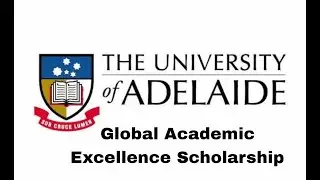Studying Masters in Ireland
Studying Masters in Ireland: A Comprehensive Guide for International Students
Ireland has become an increasingly popular destination for international students looking to pursue higher education. With its world-renowned universities, stunning natural landscapes, and welcoming people, Ireland has a lot to offer. If you're considering studying for a master's degree in Ireland, here's everything you need to know.
Why study in Ireland?
Ireland is home to some of the world's top universities, including Trinity College Dublin, University College Dublin, and University College Cork. These institutions have a long history of academic excellence and are known for producing world-class graduates. In addition, Ireland is a member of the European Union, which means that students can take advantage of a range of benefits, including access to healthcare and the ability to work part-time while studying.
What are the entry requirements?
To be eligible for a master's degree in Ireland, you'll need to have a bachelor's degree or equivalent from a recognized institution. You'll also need to demonstrate proficiency in the English language by taking an approved English language test such as IELTS or TOEFL. Additionally, some courses may have specific entry requirements, such as work experience or prerequisite courses.
How to apply?
To apply for a master's degree in Ireland, you'll need to submit an application to your chosen university. The application process will vary depending on the institution, but typically you'll need to provide transcripts of your previous academic qualifications, a personal statement, and references. You may also need to provide evidence of your English language proficiency.
What are the tuition fees?
Tuition fees for master's degrees in Ireland vary depending on the course and institution. On average, international students can expect to pay between €13,000 and €20,000 per year. However, some courses, such as those in medicine or science, may be more expensive. It's important to note that tuition fees for non-EU students are generally higher than those for EU students.
What are the living expenses?
The cost of living in Ireland can vary depending on where you choose to live. Generally, the cost of living in Dublin is higher than in other parts of the country. As a student, you can expect to pay around €800 to €1,200 per month for accommodation. Other living expenses, such as food, transport, and entertainment, will depend on your lifestyle.
Can you work while studying?
International students are allowed to work part-time while studying in Ireland. During term time, students are allowed to work up to 20 hours per week, and full-time during holidays. However, it's important to note that part-time work should not be relied upon to cover all of your living expenses.
What are the visa requirements?
International students from certain countries will need to apply for a visa before coming to Ireland. To be eligible for a student visa, you'll need to have been accepted onto a course at a recognized institution, have proof of sufficient funds to support yourself during your stay, and have valid health insurance. Visa requirements can vary depending on your country of origin, so it's important to check with the Irish embassy in your home country.
Conclusion
Studying for a master's degree in Ireland can be a great opportunity for international students looking to further their education and experience a new culture. With world-class universities, a welcoming community, and a range of opportunities for part-time work, Ireland is a great choice for anyone looking to study abroad. Just make sure to do your research, plan ahead, and enjoy the experience!







![Fork bombs [Windows + Linux]](https://images.videosashka.com/watch/r1Z5DjygsjE)











